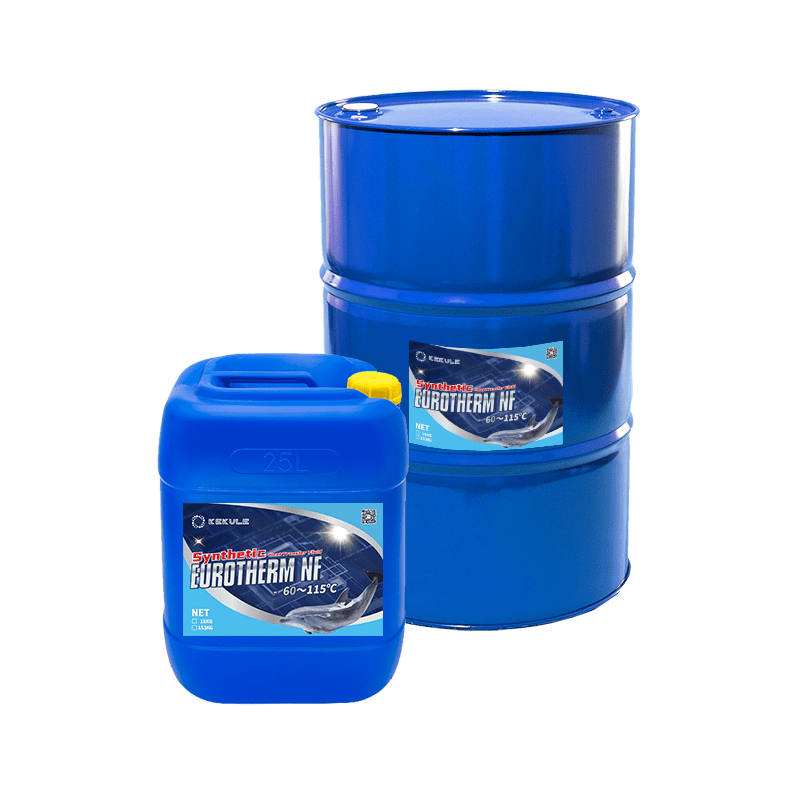Heat Transfer Fluid: Necessary for Optimizing Industrial Heating & Cooling Solutions
Heat Transfer Fluid: Necessary for Optimizing Industrial Heating & Cooling Solutions
Blog Article
How Warm Transfer Fluid Adds To Lasting and Economical Workflow
In the modern commercial landscape, the function of warmth transfer fluids (HTFs) in advertising sustainable and cost-efficient operations can not be overemphasized. These liquids are pivotal in optimizing thermal administration systems, thereby substantially boosting energy performance and decreasing functional costs. The ecological advantages of sophisticated HTFs, with their high thermal security and low poisoning, are undeniable. They not just extend system long life but additionally add to the decrease of hazardous exhausts. The real potential of HTFs is recognized through the thorough selection procedure, making certain compatibility and safety. Yet what factors should guide this essential choice?
Recognizing Warmth Transfer Liquids
In the world of thermal monitoring, warmth transfer liquids (HTFs) act as essential agents for moving thermal power from one area to an additional. These liquids play an essential duty in different commercial applications, including chemical handling, power generation, and heating and cooling systems. HTFs are specifically engineered to operate within a vast array of temperature levels, efficiently assisting in the transfer of heat while maintaining a steady thermal account. Their ability to function under severe problems-- whether high temperature levels or cryogenic levels-- makes them essential in environments requiring accurate thermal control.
The composition of warmth transfer liquids can vary substantially, consisting of options such as mineral oils, artificial oils, glycols, and molten salts. Each kind offers distinctive advantages, such as boosted thermal security, low thickness, and high boiling points, which are selected based upon specific operational requirements. The option of HTF influences not only the efficiency of warmth transfer but additionally the durability and safety and security of the system in which it is employed.
As sectors remain to introduce, the growth of advanced HTFs, defined by their enhanced thermal conductivity and minimized environmental effect, is critical for meeting the demands of contemporary thermal monitoring obstacles.

Enhancing Energy Effectiveness

Improving power effectiveness has actually come to be an extremely important concern across various industries, triggering a closer assessment of warm transfer liquids' function in enhancing thermal administration systems. These fluids are important to keeping the preferred temperature in processes, thus minimizing energy waste and improving total system efficiency. By picking a proper warm transfer fluid, sectors can dramatically boost their energy performance, causing minimized energy intake.

Advanced formulations of heat transfer liquids have actually been established to stand up to extreme temperature levels while keeping security and effectiveness. These advancements prolong the operational life-span of the liquid, decreasing the frequency of substitutes and energy-intensive upkeep activities. Additionally, the usage of artificial or bio-based fluids supplies fringe benefits in regards to minimized environmental influence, lining up with global sustainability objectives. Enhancing power efficiency with optimum heat transfer fluid selection is not only a technological necessity however additionally an environmental imperative.
Reducing Operational Expenses
Functional prices are a significant consideration for sectors seeking to preserve affordable benefit, and the selection of warmth transfer fluid plays an important role in expense administration. Choosing an ideal warmth transfer liquid can bring about substantial cost savings by enhancing system effectiveness and minimizing power usage. High-performance liquids reduce thermal deterioration, which consequently minimizes the regularity of liquid substitute and downtime related to maintenance, thereby reducing operational expenses.
Moreover, heat transfer fluids with premium thermal stability and deterioration resistance expand the lifespan of equipment. This lowers the need for frequent repair services and substitutes, which can be costly and disruptive to procedures. By buying top notch liquids, industries can accomplish long-lasting decreases in upkeep costs and improve the dependability of their systems.
Furthermore, advanced heat transfer fluids often show reduced viscosity at operating temperature levels, which boosts pump effectiveness and decreases power use in liquid blood circulation. This optimization of power usage directly converts into decreased functional prices. Many contemporary heat transfer liquids are engineered to operate effectively over a large temperature level variety, lowering the requirement for numerous fluid kinds, thereby enhancing inventory demands and lowering connected prices. These elements jointly contribute to more lasting and affordable operations.
Ecological Effect Decrease
The press towards lowering environmental effect has gained energy in sectors leveraging warm transfer fluids. Warm transfer fluids (HTFs) play a vital role in this change, supplying chances to enhance power performance and minimize discharges - heat transfer fluid.
Moreover, the find here usage of sophisticated heat transfer liquids contributes to improved system efficiency, lowering the general power usage. This reduction not just results in price financial savings but additionally reduces co2 discharges, aiding in the battle against environment change. Liquids that are naturally degradable and recyclable further boost sustainability efforts, as they decrease waste and read review promote round economic climate practices.
Furthermore, incorporating HTFs into closed-loop systems protects against fluid loss and contamination of the surrounding atmosphere. This technique makes sure that fluids are reused, decreasing the demand for brand-new resources and restricting waste generation. By embracing these eco mindful strategies, markets can considerably reduce their ecological effect while keeping high operational performance, aligning with worldwide sustainability objectives and regulatory demands.
Picking the Right HTF
Selecting the proper heat transfer fluid (HTF) is an essential step in advancing ecological sustainability within commercial processes. The option of HTF straight influences system efficiency, energy usage, and ecological influence. An ideal HTF must have a high thermal ability, low viscosity, and high thermal conductivity to guarantee effective warmth transfer. Additionally, its stability over a wide temperature level array is crucial to avoid deterioration, which can cause boosted exhausts and waste.
This ensures long life and minimizes maintenance prices. The fluid ought to be non-toxic and eco-friendly, lessening its ecological impact and ensuring conformity with environmental regulations.
Verdict

Report this page